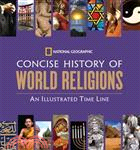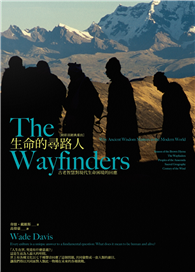圖書簡介"Religion lies at the heart of the human experience. The great faiths--Christianity, Islam, Hinduism, Buddhism, and Judaism--together may account for up to six billion of the world's nearly seven billion people. For all the differences between their beliefs--or between them and followers of Japanese Shinto or animistic faiths in Africa--these adherents seek the same fulfilment from their religious experience: a feeling of connection with the universe, an understanding of their purpose, a moral code, a sense of fellowship, and a sense of the supernatural. As Concise history of world religions shows, such human yearning has inspired many different forms of faith, from the myths of the ancient Egyptians to the storefront churches of San Francisco in the 1960s. The majority of the world's faiths have disappeared; as the timelines reveal, even those that have survived have done so in a constant state of change as the world itself has changed. The universal truths of scripture have undergone review and reinterpretation. Visionary individuals have changed the direction of many churches. Political events have dragged even faiths that profess peace and universal brotherhood into visceral violence and bitterness. Churches have split and formed splinter congregations (some destined to be short-lived, such as the Shakers of 19th-century America, who insisted on celibacy, or the Russian Skoptsy, who reinforced biblical injunctions against lust by practicing male castration). Generations of believers have attempted torevive what they see as purer forms of religious practice from the past. Artists, architects, composers, and writers have been inspired to celebrate their gods. Such is the power of faith that even many of those who reject the idea of the divine adopt their own forms of religious codes, arguing that morality is not the exclusive preserve of the believer. Concise history of world religions does not ignore the problems and divisions faith has caused, nor the various secular movements that challenge it. Butabove all it is a celebration of the enduring power of belief and the fact that the optimism and comfort it offers, although it has on occasion been something to kill for, has far more often been something to live for--the framework that makes sense of everything"--Foreword, p. 8.












